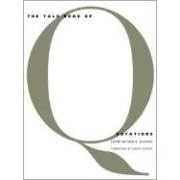
In response to her review, the following is my thought:
Besides having charisma, one has to be in the right place at the right time to come to power. If you read the history of China, Europe and you see how Mao Ji Dong, Lenin and Hilter came to power and rose to the top out of nowhere....There is a similarity. I'm not saying Obama is like any of them in terms of personality or governing philosophy. But the fundamentals of how Obama came to power are the same like those... that is "grassroot" campaigning and speeches that struck a cord of the people's heart at the right time when the countries were in chaos, or having economic or social problems. Lenin, Moa, Hilter all knew "power came from the bottom up...and the majority of the people...." They won their power with the support of the pepole who all wanted change, who all desired a new course that would improve their welfare and prosperity....who all disliked the wealthy class and the corrupted government who catered to them ..... Actually, Obama's campaign tactics are nothing new..
"Change", "New Direction", "Revolutionary", "For the pepole"....were big words for Mao, Lenin and Hilter... Again, Obama is not Lenin, Mao or Hilter. Just his campaigns are similar to theirs, and his strategies to motivate the voters are the same. The message of the campaign is so similar, "The current government isn't working for the people, they are working for their own interets and the wealthy people's interest, this is why you need me, to change, to work for you, the pepole..." Moa visited villages after villages to deliver messages like this in China.... The entire China fell in love with him...(too bad this guy turned out to be a dictator, controlled freak)
Obama is a very smart and educated man, there is no doubt about it. But he also happened to be in the right place at the right time when Americans were all feeling lost and hopelessness about their country's economic and political policies and there were enough disgruntled Americans there to demand a new face, a new something.... In a situation like this, all it took was really a new face, a new political party, new energy, a new style to win the pepole over... Obama happened to be that new face, new kid who got "new ideas" (not to me though, I heard those before...)
Only history will tell if Obama is the solution to America's problems like his campaign promised.Obama's campaign is one proof that history always repeats itself, and regardless of race, ethnicity and the culture, what people like to hear and what entice pepole are all the same things....
Right now, I'm neutral about Obama. Coming from China and having grandparents and parents telling me the political change of their time, I just don't get impressed or moved by politicans and their speeches like my American friends. Cause what Obama said, I had heard similar on documentaries I watched when I was growing up....(people often vote on passion , impulse, on "heresays" that's what I learnt from history)I like to vote by studying closely everything the person has done,(his track records) and the practicality of everything he promised. Charisma is not what I'm looking for in a President.
I think other politicians can succeed if they refer to history what works and what doesn't work in terms of getting support. (not just from Obama's success, yes, his too, but before him, there were others who used the same strategies) My other question is: Would Obama have beaten Hilary Clinton if the United States were truly democratic. (when all Florida and Michigan's votes were not counted??? Or if the Primaries were run by one undisclosed vote per voter instead of caucasus and the system of delegates? Caucasus and delegates are still very weird concepts for me, may be because I'm not American and I don't really understand how democracy is defined in America....)











